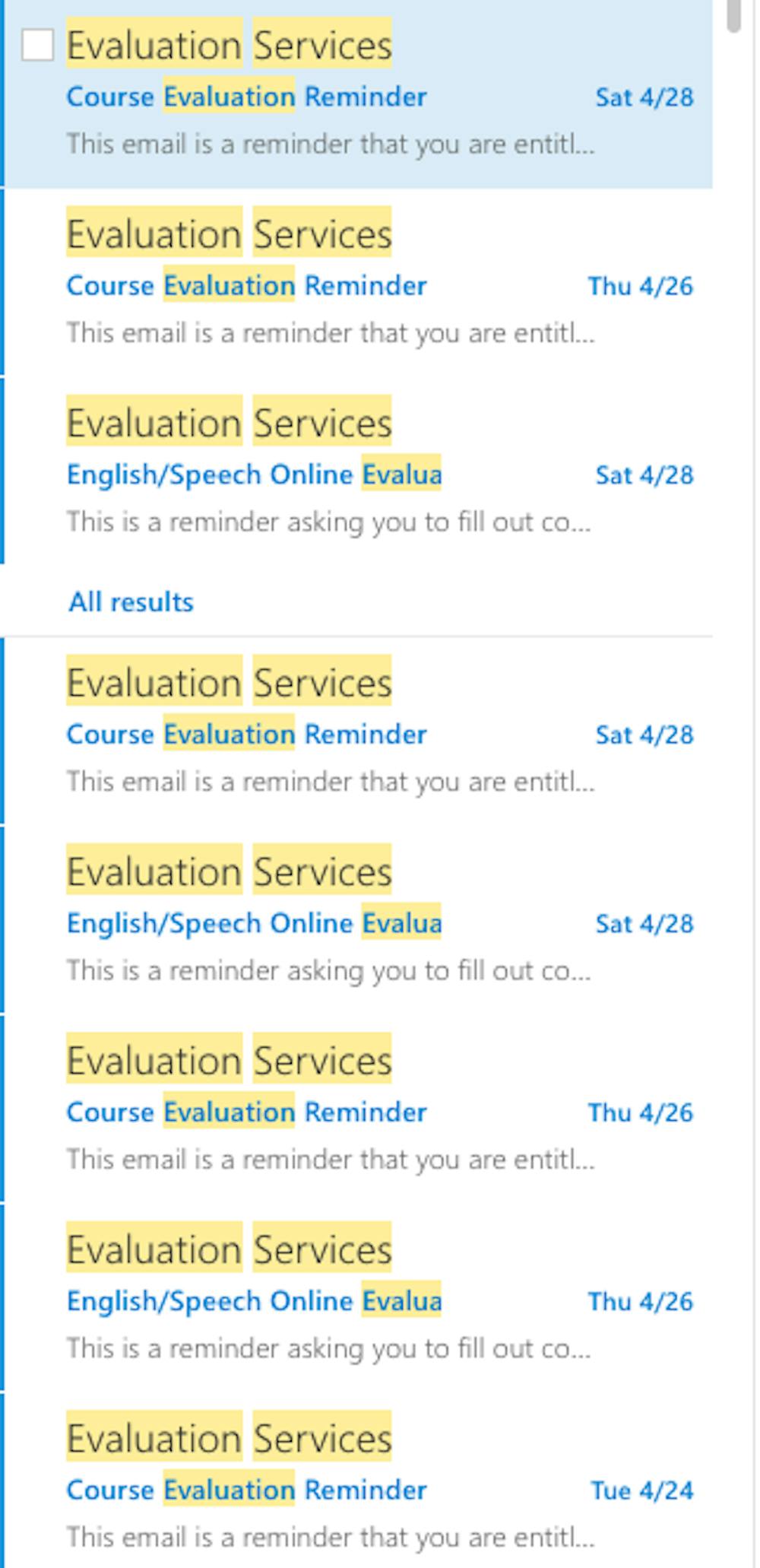It’s the end of the semester and, if you’re anything like me, you’re calculating the minimum score you need on each final to preserve your GPA. You’ve given up on your perfect grades and have decided that napping is preferable to graduating. Instead of studying for your exams, you’re probably re-watching a show you’ve already seen a dozen times through (*cough* The Office *cough*). In short, you’re burned out and lack the adrenaline that got you through the rest of the semester. Needless to say, now is probably the worst time to ask for your opinions on your classes and professors (or anything for that matter), but it’s course evaluation season all the same.
I understand that course evaluations provide important data to the university, and it makes sense to fill them out during the last week of class after you’ve gotten the full experience. However, the data collected from these evaluations might do more harm than good. Groggy students irritated by exams and term papers are not likely to give responses that are helpful — certainly not representative — of the actual quality of the class. If you take a moment to look around the room during evaluations, you’ll realize how few students put thought into their answers; some just mark the same box for every question — some going very high and others very low. Even fewer put constructive responses in the free response section. And why would they? It doesn’t do them any good one way or the other.
While this might not seem like an issue to you, the results of these evaluations carry a lot of weight — they directly affect the careers of professors and the substance of future classes. Something you offhandedly write could be part of the reason someone is without a job or the reason that future students suffer through a terrible class. That’s a lot of power to give to students who are not motivated to care.
We can’t get rid of course evaluations — the school still needs the data — so what’s the alternative? Two course evaluations. All right, don’t laugh. It’s counterintuitive, sure, but hear me out. We could add an evaluation period to the midpoint of the semester to gauge students’ first impressions. This would accomplish two things. First, students would care more about the evaluations because the answers they give would actually have an impact on the class; their responses would prod professors to fine-tune the course in progress and implement more student-friendly policies (e.g. posting slides and study guides, answering student questions, etc.).
Second, creating a midpoint evaluation would make the final evaluation more meaningful; the middle evaluation would function as a baseline to compare with the final evaluation. That way, the university could measure any progress made by the end of the semester; they would be able to make informed decisions about whether or not professors met the needs of their students based on answer trends instead of the current system of looking solely at one test of arbitrary five-point rating scales. This would produce more dynamic results and allow the university to make decisions more reflective of student opinions.
The end of the semester is stressful as-is, but it’s worse if you’re in an awful class. Students should have the ability to advocate improvement in their classes without having to trudge through them first. Midpoint evaluations would be a means to give students a voice in a way that is both helpful to the university and worth it to students.

